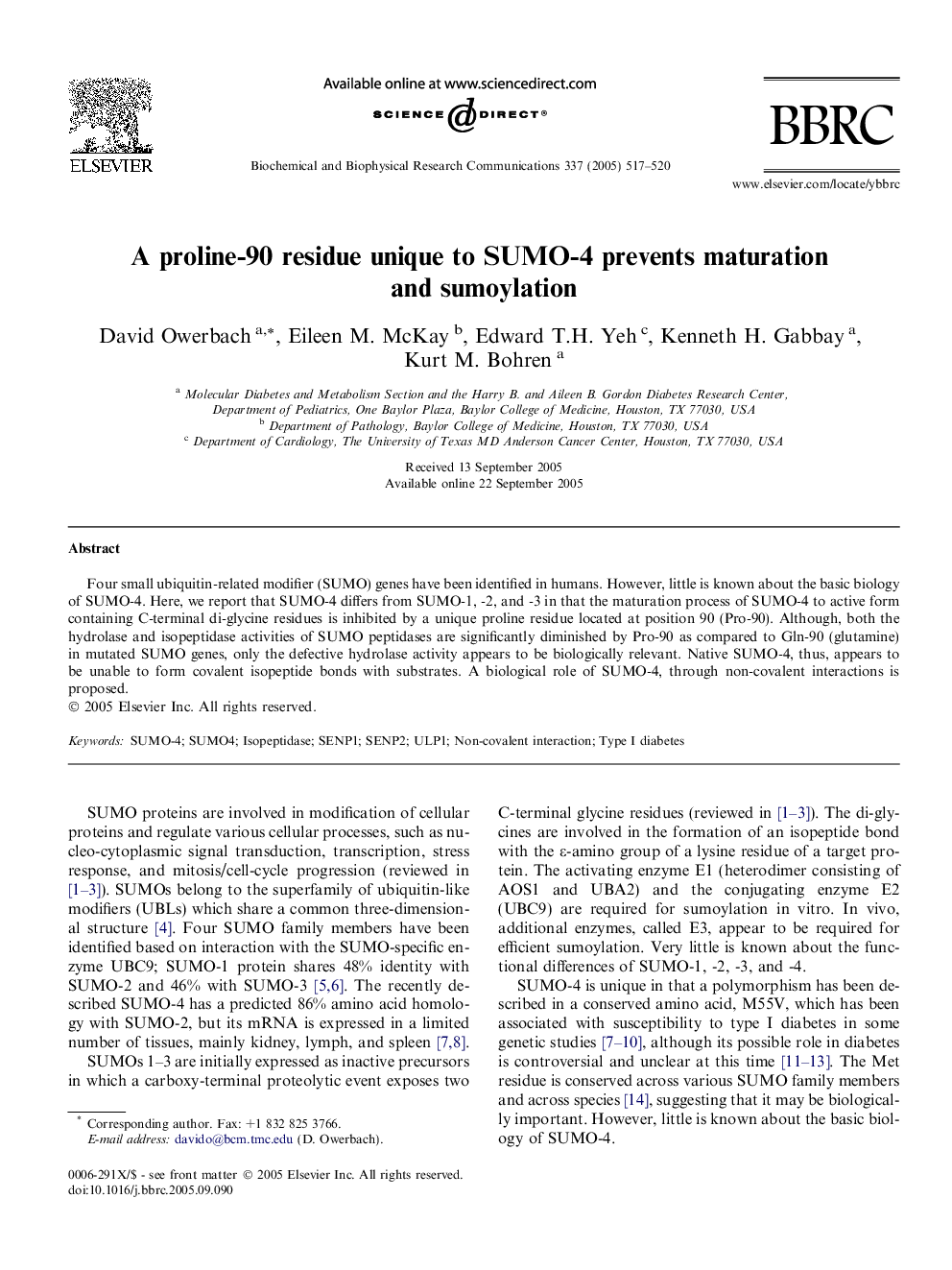| Article ID | Journal | Published Year | Pages | File Type |
|---|---|---|---|---|
| 10767816 | Biochemical and Biophysical Research Communications | 2005 | 4 Pages |
Abstract
Four small ubiquitin-related modifier (SUMO) genes have been identified in humans. However, little is known about the basic biology of SUMO-4. Here, we report that SUMO-4 differs from SUMO-1, -2, and -3 in that the maturation process of SUMO-4 to active form containing C-terminal di-glycine residues is inhibited by a unique proline residue located at position 90 (Pro-90). Although, both the hydrolase and isopeptidase activities of SUMO peptidases are significantly diminished by Pro-90 as compared to Gln-90 (glutamine) in mutated SUMO genes, only the defective hydrolase activity appears to be biologically relevant. Native SUMO-4, thus, appears to be unable to form covalent isopeptide bonds with substrates. A biological role of SUMO-4, through non-covalent interactions is proposed.
Related Topics
Life Sciences
Biochemistry, Genetics and Molecular Biology
Biochemistry
Authors
David Owerbach, Eileen M. McKay, Edward T.H. Yeh, Kenneth H. Gabbay, Kurt M. Bohren,
